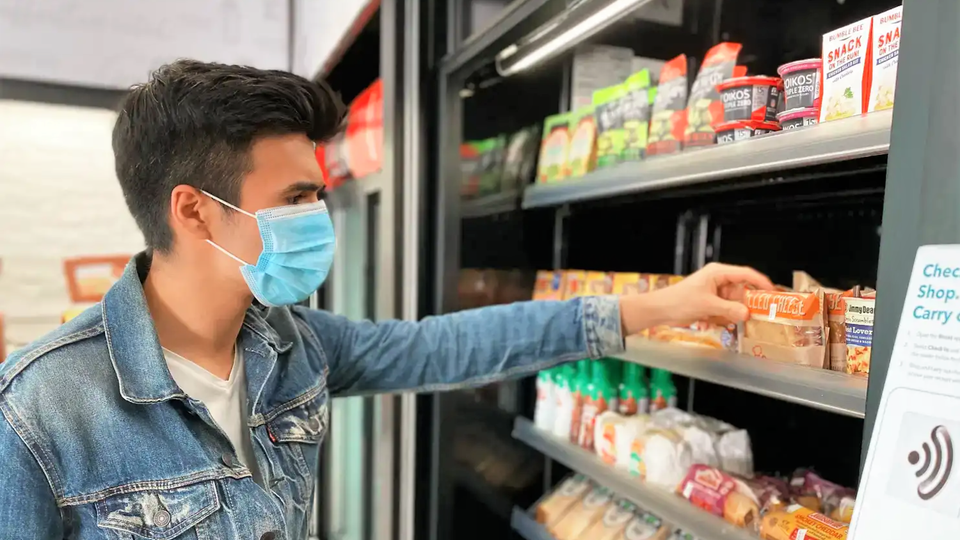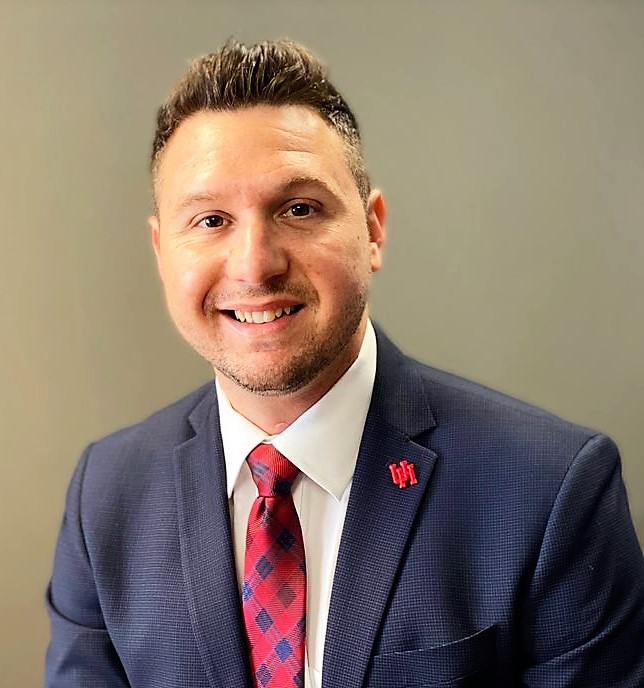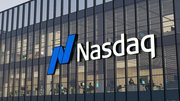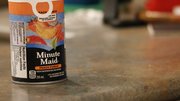Foodservice
Cashierless checkout brings a new convenience to University of Houston
The University of Houston installed its first cashierless convenience store, 'Market Next,' enabling guests to purchase items without having to scan packages or pay with a card.

May 5, 2021 by Elliot Maras — Editor, Kiosk Marketplace & Vending Times
When students return to classes at the University of Houston in August, they'll be able to grab a snack at Technology Bridge, an area housing research activities, any hour of the day, thanks to a checkout free solution called "Market Next."
Students can walk in, take what they like, and simply walk out — without having to scan anything or wait in line to pay.
Chartwells Higher Education, the campus foodservice provider and a division of Compass Group North America, installed the cashierless checkout store last fall, replacing a micro market that had been in operation for at least two years.
Beyond the micro market
 |
| Charles Pereira said the cashierless solution improves the guest experience and drives sales. |
The micro market was more convenient than a traditional c-store, but not completely frictionless, Charles Pereira, Chartwells vice president of operations for the university, told Vending Times in a phone interview.
"The guest would take their bag of chips and bottle beverage and scan it at the register, insert their credit card and then leave," Pereira said in explaining some of the micro market's friction points. "And if there's three or four people trying to actively do that at the same time, that could become cumbersome," he said. "Sometimes scanning of the barcodes on the register are difficult. That aspect of the (micro market) checking out is not as fluid as in a Market Next situation where there's no transaction at all. It's all done through an app. There's no credit card being pulled out of your wallet."
How it works
With Market Next, the customer simply opens their Chartwells "Boost" ordering app and selects the Market Next location and taps the check-in function. The Boost app is a mobile order app for various campus retail services that Chartwells also operates on campus.
The app must connect to a credit card account or a pre-funded student "Dining Dollars" account in order to complete a transaction.
"We retrofitted the footprint with the new frictionless retail software and cameras and technology to be able to become a completely frictionless concept," Pereira said.
The university became the first Chartwells client to use the camera-based frictionless retail solution provided by Standard Cognition. The market is located on the ground floor of one of the main buildings.
The market closed in January on account of COVID and will reopen on Aug. 23.
A viable solution
Chartwells selected Standard Cognition's solution shortly after it became available, Pereira said.
"We presented it to our University of Houston partners and collaborated to launch this concept," he said. "We thought it would be a great fit for the campus and the community."
The university didn't hesitate to accept the concept and promoted it to the campus community via social media.
Chartwells had a Standard Cognition attendant on site when Market Next was introduced for a short time period.
"The knowledge and understanding of the app was well received by the student body and very easily integrated their purchasing," he said.
The fact that cash is not accepted has not created any objections, Pereira said. The micro market did not accept cash either.
"Market Next is unique in that it's a conversion of an existing space," Pereira said. "It offers a completely new dining experience. A guest can shop, grab and go in as little as three seconds."
In addition, "This format allows us to expand operating hours, which is great," he said. "We're able to offer more late night and longer service periods."
"It's also especially helpful in high volume situations because we can reduce the queue time as well as the length of time the shopping experience takes," he said.
The market is stocked and serviced daily with grab-and-go items, and gets a daily sales report on the purchases, which includes a product movement report that aids in creating new menus.
"Market Next is really intended to both drive sales and improve the guest experience," he said. "We're always seeking innovative ways — concepts and models and foodservice trends — to bring to campus."
The comparative benefits over the micro market have been hard to quantify due to the changes in campus population caused by the pandemic, Pereira said.
Nevertheless, the school plans to install more cashierless stores.
"Checkout-free technology is an innovation that will make our students' lives a little easier and a lot safer," Emily Messa, associate vice chancellor and associate vice president for administration at the university, said in a prepared statement. "This is the new standard for campus safety that is important to students today and for the foreseeable future. That's why we will plan to convert additional market stores on campus to this technology in the coming year."
About Elliot Maras
Elliot Maras is the editor of Kiosk Marketplace and Vending Times. He brings three decades covering unattended retail and commercial foodservice.
 ChatGPT
ChatGPT Grok
Grok Perplexity
Perplexity Claude
Claude






